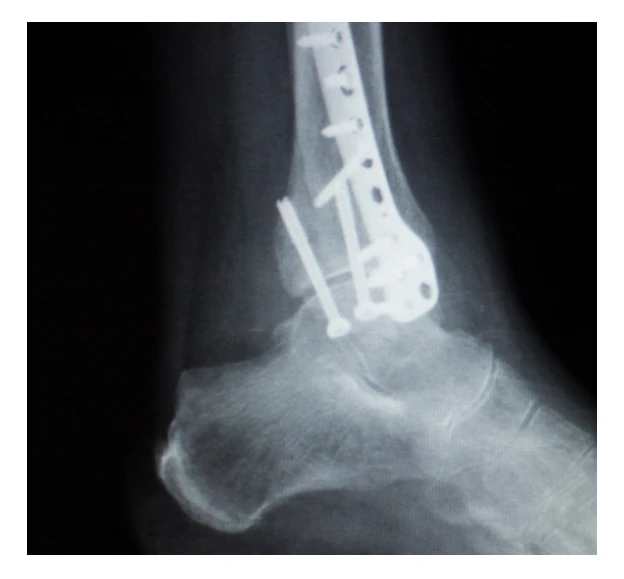Exactech Implant Lawsuits

Joint arthroscopies are supposed to enrich patients’ lives by restoring mobility and eliminating chronic pain. Hip, knee, and ankle replacements are highly successful procedures that have well-established success rates of at least 90% after ten years.
The success of these procedures can be attributed to the skill of the physicians performing the surgery and the quality of the joint replacement implants. Surgeons and patients rely on hip, knee, and ankle replacement manufacturers to offer safe, effective products.
Exactech Product Defects
The Exactech recalls relate to the polyethylene components of the following brands of their hip, knee, and ankle replacements:
- Optetrak
- Truliant
- Vantage
Patients who received certain Exactech hip, knee, and ankle replacements marketed under these brands and manufactured after 2004 have experienced higher-than-average failure rates within just a few years after their arthroscopy procedures.
A study by the Australian Orthopaedic Association revealed that the two Exactech’s recalled knee replacement implants studied have a failure rate of 16% within the first three years, compared to 2.5% in other brands.
Hip Replacements
On June 29, 2021, Exactech initiated a recall of its Connexion GXL polyethylene acetabular (socket) liner after observing a risk of excessive edge loading and premature wear of the polyethylene material.
Plaintiffs’ counsel on June 14, 2022, filed a motion to transfer and centralize the 27 defective product lawsuits against the company in the Eastern District of New York.
The U.S. Judicial Panel on Multidistrict Litigation heard oral arguments in St. Louis, Missouri, on September 29, 2022.
Knee and Ankle Replacements
Exactech initiated the recall of the polyethylene insert in knee and ankle replacements on August 31, 2021. The company found that 80% of its inserts manufactured after 2004 were improperly packaged in “nonconforming bags.”
Polyethylene, a type of plastic, begins to degrade when exposed to oxygen and thus requires oxygen-resistant packaging. While vacuum bags were used, they lacked the necessary extra barrier layer composed of ethylene-vinyl alcohol (PVOH). This made the inserts vulnerable to oxygen permeation.
Defective Polyethylene Inserts
The result is that the polyethylene wears down quickly after implantation. As polyethylene wears down, fragments are released into the tissues surrounding the joint replacement. This gives way to complications that lead to failure of the joint replacement.
Joint Replacement Failure
The released polyethylene fragments into the tissues cause inflammation, infections, and osteolysis. Osteolysis is the progressive destruction of the bones. There are no symptoms associated with this process until after the damage has been done. In total joint replacements, this damage leads to the failure of the prosthetic device.
Arthroscopic failure causes the following symptoms and complications:
- Loosening of the device
- Instability of the joint
- Infections
- Frequent or recurring dislocations in hip replacement failures
- Bone fractures
Joint replacement failure is catastrophic for many patients, who often experience severe pain, impaired mobility, and an increased risk for falls. Such failure necessitates painful revision surgery, a more complicated procedure than the original arthroscopy.
Many arthroscopy patients are elderly and cannot undergo revision surgery due to their health statuses. In some knee replacement cases, the symptoms appear after bone destruction or infections are advanced, and amputation above the knee becomes necessary.